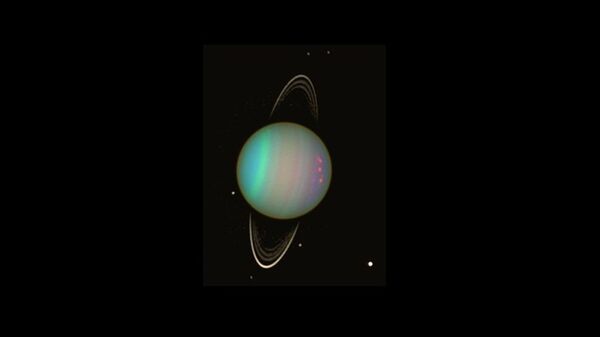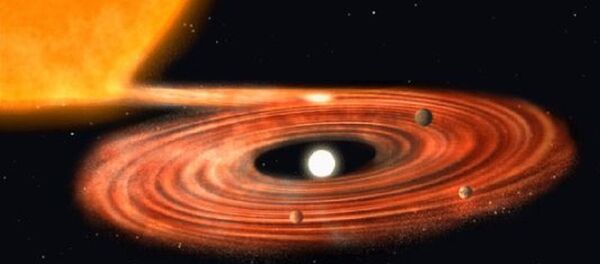The findings, published recently in the Nature Astronomy journal, reveal that Uranus' upper atmosphere smells like rotten eggs, the signature scent of the colorless, flammable hydrogen sulfide gas it is made up of.
"If an unfortunate human were ever to descend through Uranus' cloud, they would be met with very unpleasant and odiferous conditions," one of the report's authors, Patrick Irwin, told BBC recently.
But of course, the smell's not the worst of the Uranus experience. "Suffocation and exposure in the negative 200 degrees Celsius [minus 328 degrees Fahrenheit] atmosphere made of mostly hydrogen, helium and methane would take its toll long before the smell," Irwin added. Chances are, no one could live long enough to actually get a whiff of Uranus' stinkiness.
The researchers detected the foul smells — er, chemical composition — using the Near-Infrared Integral Field Spectrometer (NIFS) of Hawaii's Gemini North telescope, which sits on the Mauna Kea volcano in Hawaii.
The scientists used the 26.5-foot telescope to examine samples of reflected sunlight from Uranus' high atmosphere, which showed that hydrogen sulfide had absorbed some wavelengths from the sun.
According to Leigh Fletcher, a senior research fellow in planetary science at the University of Leicester in England and co-author of the study, the hydrogen sulfide composition in the upper atmosphere of Uranus is different than that of Jupiter and Saturn, where ammonia is present in large amounts instead.



